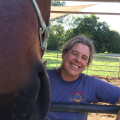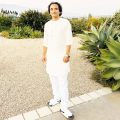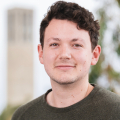Regulation of development and differentiation; regulation of programmed cell death and cell division; mechanisms of tumorigenesis
Members
Principal Investigator
Project Scientists
My research investigates the apoptotic and non-apoptotic roles of programmed cell death (PCD) regulators during cellular growth, proliferation, reprogramming and mitochondrial purifying selection in the C. elegans germline. I am also investigating the role of mitochondria and hormesis in aging and longevity as well as the regulation of adult germline stem cell (GSC) homeostasis by microRNAs.
Lab Manager
I participate in and support several different research projects within the lab while managing the day to day running of the lab.
Postdoctoral Researchers
I am interested in the molecular mechanisms by which complex organisms, specifically the nervous system of complex organisms, survive extreme environmental challenges. To answer these questions, I use the extremely tolerant Tardigrade, a unique invertebrate clade renowned for its ability to survive, complete desiccation, hypoxia, the vacuum of space, and radiation 1000 times the dosage of other animals! I am currently pursuing three avenues of research in the lab.
Graduate Students
My research is centered on understanding transdifferentiation, transorganogenesis, and the intriguing fields of aging and longevity in the nematode C. elegans. Furthermore, my objective is to bridge the gap between human biology and model organisms by applying these insights to the context of human cells.
I am an NSF GRFP Fellow in Joel's lab. I am currently working on a project that investigates genetic mechanisms by which C. elegans facilitate purifying selection with their mitochondria, decreasing the level of mitochondrial genome deficiencies passed on to their progeny. I'm also interested in research questions concerning interstellar biology and how epigenetic landscapes are shaped by environmental stress.
I am interested in understanding the mechanisms controlling healthspan and lifespan, including the role of genetic and epigenetic factors, natural and artificial rejuvenation events, and dietary and behavioral interventions. I work with the premier aging model of C. elegans and focus on leveraging large-scale biological data through the use of statistics and bioinformatics.
My work focuses on elucidating the variety of mechanisms tardigrades incorporate to survive extreme conditions. My current projects include developing a novel feeding assay, studying stress response pathways, and increasing the tools we have to study these incredible animals.
My focus is on understanding how tardigrades respond to extreme environments, specifically ranging pH levels.
Undergraduate Students
I am working with Paige to study how tardigrades respond to extreme pHs. Specifically, I am studying the effect that extreme pHs have on the reproduction patterns of tardigrades as well as tardigrade pH preference.
I am working with Dr. Joshi to uncover the molecular pathway by which cell death regulators recycle defective mitochondrial DNA in the C. elegans germline.
I work with Juwel on projects relating to aging and longevity in C. elegans and understanding the mechanisms that increase their lifespan.
I work with Jonathan Paules in measuring the actin levels in tardigrades post fed knockdown. The aim of the project is to better study tardigrades as model organisms in response to extreme environment conditions.
I am currently assisting in continuing the research of Dr. Ackley by studying the different mechanosensory pathway systems responsible to how C. Elegans exhibit negative gravitaxis behavior. As well as assisting Dr. Kirk as part of the Proofreading Team for studying tardigrade neuronal pathways and system development.
I am working with Juwel Chandra Baray on aging and longevity using C. elegans. We are interested in using this robust model to understand underlying lifespan extension pathways.
I currently assist Jonathan on his project aiming to genetically modify algae to induce RNAi in tardigrades. I'm also investigating algal cryofreezing procedures / supernatants and algal flocculation for tardigrade feeding.
Currently, I am continuing the research of Dr. Ackley, studying the different mechanosensory systems in C. Elegans that are responsible for negative gravitaxis behavior.
I work with Jon testing single protein knockdown via RNAi injection, along with studying tardigrade survival under extreme environmental conditions.






















